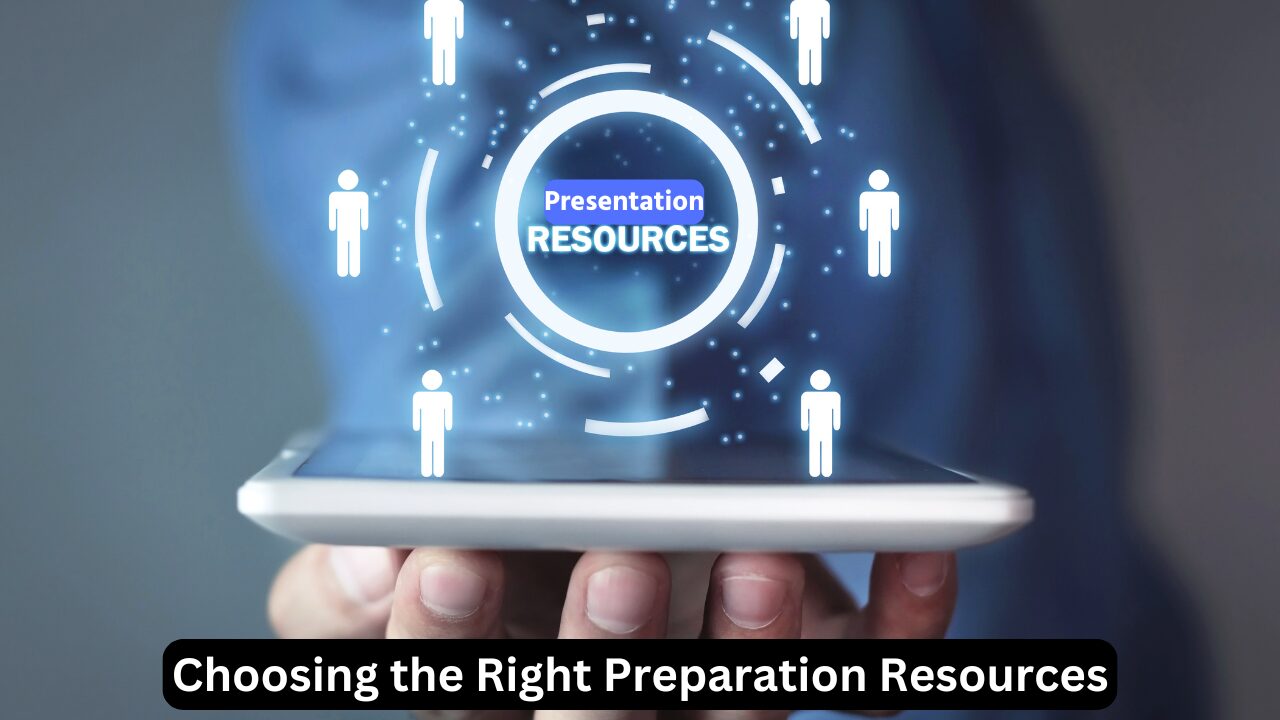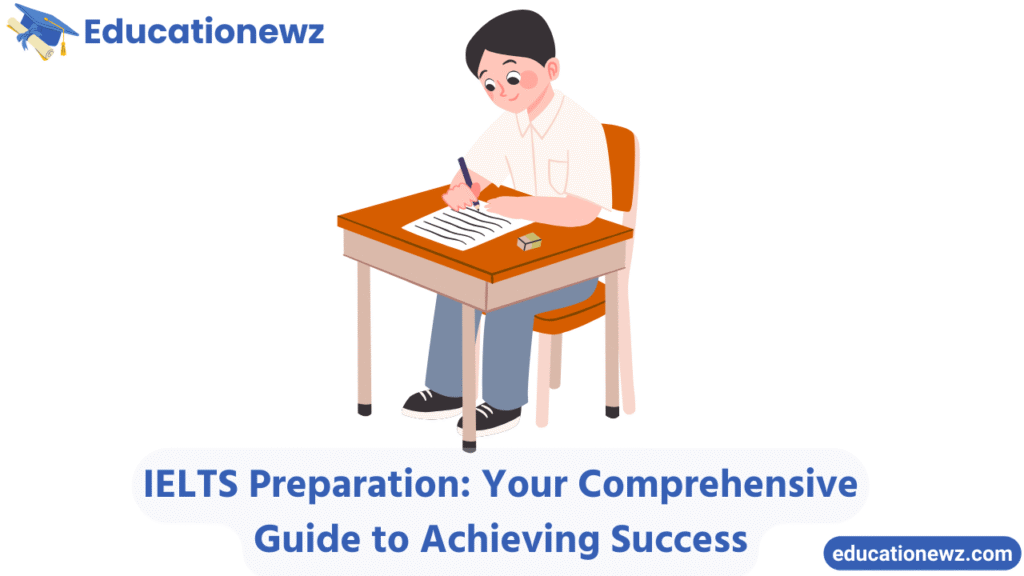Effective IELTS Preparation requires understanding the test format, consistent practice, and using high-quality resources to improve your Listening, Reading, Writing, and Speaking skills within a structured study plan.
The IELTS (International English Language Testing System) exam is a critical step for anyone aspiring to study, work, or migrate to English-speaking countries. It tests your ability to communicate effectively in English through four sections: Listening, Reading, Writing, and Speaking. Preparing for IELTS requires a structured plan, effective strategies, and quality resources. This detailed guide will provide everything you need to excel in your IELTS preparation journey.
What Is IELTS and Why Is It Important?
The IELTS (International English Language Testing System) is a globally recognized exam designed to assess an individual’s proficiency in the English language. It evaluates four essential skills: Listening, Reading, Writing, and Speaking, which are crucial for effective communication in academic, professional, and everyday settings. This test plays a pivotal role for individuals aspiring to study, work, or migrate to English-speaking countries such as Canada, the UK, Australia, New Zealand, and the United States.
Types of IELTS Exams
The IELTS exam is divided into two main types based on your goals:
- Academic IELTS:
- Tailored for those pursuing higher education or professional registration.
- Commonly required for university admissions, scholarships, or professional certifications.
- General Training IELTS:
- Suitable for individuals seeking work opportunities, vocational training, or migration.
- Often used in immigration processes for countries like Australia and Canada.
Importance of IELTS
Achieving a high IELTS score is essential because it demonstrates your ability to communicate effectively in English, which is often a prerequisite for academic success, job eligibility, and social integration. Your results are presented as a Band Score, ranging from Band 1 (Non-User) to Band 9 (Expert User).
A high IELTS score:
- Improves career prospects: Employers prioritize candidates with proven language skills.
- Enables university admissions: Universities often require minimum scores for programs.
- Simplifies immigration processes: Governments assess your language proficiency as part of visa applications.
- Enhances personal confidence: Mastery of English equips you to navigate international environments.
For instance, if you aim to study in the UK, many universities require an overall score of 6.5 or higher for most courses. Similarly, for migration to Canada under the Express Entry system, IELTS scores can significantly influence your Comprehensive Ranking System (CRS) points.
Why Is IELTS Widely Accepted?

The IELTS is trusted by over 11,000 organizations worldwide, including universities, employers, professional bodies, and government agencies. Its credibility stems from its rigorous evaluation process, realistic testing scenarios, and emphasis on practical language skills rather than rote memorization.
Taking the IELTS exam is more than just fulfilling a requirement; it’s an opportunity to prove your readiness to thrive in an English-speaking environment and unlock global opportunities.
Understanding the IELTS Test Format
The IELTS exam is divided into four sections, each focusing on specific skills:
| Section | Duration | Details |
|---|---|---|
| Listening | 30 minutes | Four recordings, 40 questions (10 minutes to transfer answers). |
| Reading | 60 minutes | Three long passages, 40 questions (different formats for Academic vs. General). |
| Writing | 60 minutes | Two tasks: Report/Letter (Task 1) and Essay Writing (Task 2). |
| Speaking | 11–14 minutes | Face-to-face interview with an examiner, covering 3 parts. |
Step-by-Step Guide to Preparing for IELTS
Preparing for the IELTS exam can seem challenging, but with a structured approach and effective strategies, you can achieve your desired score. Below is a detailed guide to help you navigate the preparation process step by step.
1. Assess Your Current English Level
Before diving into preparation, it’s essential to gauge your current level of English proficiency. Start by:
- Taking a full-length IELTS practice test: This will help identify your strengths and weaknesses across the four sections (Listening, Reading, Writing, and Speaking).
- Using authentic resources: Platforms like the British Council mock tests or the Cambridge IELTS book series offer accurate simulations of the exam.
- Setting realistic goals: Based on your performance, determine the band score you aim to achieve and focus on improving weaker areas.
Pro Tip: Analyze your results thoroughly. For example, if your Listening score is low, identify whether it’s due to vocabulary issues, difficulty following accents, or a lack of focus.
2. Understand the Band Descriptors
For the Writing and Speaking sections, IELTS examiners follow specific band descriptors to grade your responses. Understanding these criteria will give you a clear picture of what’s expected:
Writing Band Descriptors:
- Task Achievement: How effectively do you address the task requirements?
- Coherence and Cohesion: Is your writing logically organized with appropriate linking phrases?
- Lexical Resource: Do you use a wide range of vocabulary with accuracy?
- Grammatical Range and Accuracy: Are your sentences varied and free from grammatical errors?
Speaking Band Descriptors:
- Fluency and Coherence: Are your responses fluid and logically connected?
- Pronunciation: Is your speech clear and easy to understand?
- Lexical Resource: Are you using diverse and appropriate vocabulary?
- Grammatical Range and Accuracy: Is your grammar correct and varied?
Pro Tip: Study sample essays and speaking recordings that scored Band 8 or higher to understand the level of detail and precision required.
3. Create a Study Schedule
Consistency is key when preparing for IELTS. Develop a study plan tailored to your timeline and stick to it. Below is an example of a 6-week plan:
| Week | Focus Area | Activities |
|---|---|---|
| Week 1–2 | Listening and Reading | Solve practice tests, improve vocabulary, and focus on time management. |
| Week 3–4 | Writing | Work on essay structure, grammar, and task-specific strategies. |
| Week 5 | Speaking | Practice with a partner or tutor, work on fluency, and use mock speaking sessions. |
| Week 6 | Full-length practice tests and revisions | Take timed tests to simulate real exam conditions, refine weak areas, and review errors. |
Tips for Effective Scheduling:
- Dedicate 2–3 hours daily to focused preparation.
- Allocate more time to sections where you score lower in practice tests.
- Take short breaks during study sessions to stay productive.
4. Join IELTS Preparation Classes
If self-study feels overwhelming or you need expert guidance, consider enrolling in preparation classes. These can provide structure, feedback, and tailored advice.
Options for IELTS Preparation Classes:
- Online Courses:
- Platforms like IELTS Liz, Magoosh, or E2Language offer affordable and comprehensive online programs.
- Features often include video lessons, practice questions, and instructor feedback.
- Local Coaching Centers:
- Attend in-person classes for personalized guidance from experienced trainers.
- These centers often provide valuable resources, group practice sessions, and tips for the test day.
Pro Tip: Before choosing a class, ensure it aligns with your goals. Look for testimonials and reviews to assess the quality of training offered.
Why These Steps Are Important
Taking the time to assess your current level, understanding how you’ll be graded, planning your study schedule, and seeking guidance when needed are critical steps to mastering the IELTS exam. Each step builds a strong foundation, ensuring that you’re well-prepared to achieve your desired band score.
By following this detailed and organized approach, you can maximize your chances of success and confidently face the IELTS exam!
Strategies for Each Section

Preparing for each section of the IELTS exam requires a tailored strategy to maximize your score. Below is a detailed and engaging breakdown of effective approaches for Listening, Reading, Writing, and Speaking to ensure comprehensive preparation.
1. Listening
The Listening section assesses your ability to understand spoken English in different contexts. Here’s how to excel:
a) Familiarize Yourself with Accents
The IELTS Listening section features recordings in various English accents, primarily British, American, and Australian.
- Watch TV shows, listen to podcasts, or tune into radio channels from these regions to get accustomed to accent variations.
- Practice distinguishing between words pronounced differently, such as “can” and “can’t” or “thought” and “though.”
b) Use Practice Tests
Simulate exam conditions by taking timed practice tests. This improves your:
- Concentration: You’ll learn to focus for the 30-minute duration.
- Response Speed: Become familiar with transitioning quickly between questions.
c) Develop Note-Taking Skills
While listening to recordings, jot down important keywords, dates, or numbers.
- Use shorthand to save time, e.g., writing “14/2” instead of “February 14th.”
- Focus on details like synonyms or paraphrased information since IELTS often tests your ability to interpret meaning rather than match exact words.
Pro Tip: During the 30 seconds provided to review questions, highlight keywords to predict the type of information you’ll hear.
2. Reading
The Reading section tests your ability to comprehend texts ranging from descriptive passages to arguments. Here’s how to prepare:
a) Master Skimming and Scanning Techniques
- Skimming: Quickly read through the passage to understand its overall meaning.
- Scanning: Look for specific information (dates, names, numbers, or keywords) to answer questions faster.
b) Expand Your Vocabulary
A strong vocabulary is essential for understanding complex texts.
- Read academic journals, newspapers, and magazines like The Economist, BBC News, or National Geographic.
- Maintain a vocabulary journal to note down new words and their usage in context.
c) Answer All Questions
IELTS has no negative marking, so attempt every question, even if you’re unsure. Use elimination techniques to narrow down options in multiple-choice questions.
Pro Tip: For True/False/Not Given questions, focus on verifying facts directly stated in the text rather than interpreting or guessing.
3. Writing
The Writing section includes two tasks, both of which require clear, structured responses.
a) Understand Task Requirements
- Academic Writing: Task 1 involves describing data (charts, graphs, tables), while Task 2 is an essay requiring a well-reasoned argument.
- General Writing: Task 1 involves writing a formal or informal letter, and Task 2 requires a general essay.
b) Focus on Structure
A structured response is critical to scoring well:
- Introduction: Clearly state the purpose or argument.
- Body Paragraphs: Develop ideas with examples and explanations.
- Conclusion: Summarize your main points concisely.
c) Review Grammar and Vocabulary
- Avoid common grammar errors like subject-verb agreement issues or improper use of articles.
- Use synonyms effectively to avoid repetition but ensure the meaning remains accurate.
Pro Tip: Practice writing essays within the 40-minute time limit and analyze sample Band 8+ essays to learn how to improve coherence and vocabulary usage.
4. Speaking
The Speaking section is a face-to-face interview that evaluates fluency, pronunciation, and the ability to convey ideas effectively.
a) Practice with a Partner
Simulate IELTS speaking tasks with a friend, teacher, or tutor. Practice all three parts:
- Part 1: Answer personal questions (e.g., hobbies, work).
- Part 2: Deliver a two-minute monologue on a given topic.
- Part 3: Discuss abstract ideas related to Part 2.
b) Focus on Fluency and Pronunciation
- Speak naturally without long pauses or fillers like “um” or “uh.”
- Use intonation and stress on important words to make your speech sound natural.
c) Record and Self-Evaluate
Recording yourself can help identify problem areas like mispronunciations, hesitations, or grammatical mistakes. Re-record until your speech flows smoothly.
Pro Tip: Practice speaking on a wide variety of topics to build confidence in handling unexpected questions.
By following these detailed strategies, you can build confidence and improve your performance in each section of the IELTS exam. Stay consistent, practice regularly, and focus on areas that need improvement for the best results!
Common Mistakes to Avoid
- Poor Time Management: Always practice under timed conditions.
- Overloading on Resources: Stick to a few high-quality study materials.
- Ignoring Weaknesses: Address areas where you struggle rather than focusing only on strengths.
- Neglecting Feedback: Work with a tutor to get actionable insights on your practice tests.
Choosing the Right Preparation Resources

Recommended Books
- The Official Cambridge Guide to IELTS
- Barron’s IELTS Superpack
- IELTS Academic by Makkar
Online Resources
- British Council Website: Official materials and test details.
- IELTS Advantage: Expert tips and strategies.
- IELTS Liz: Free lessons and video tutorials.
Apps
- IELTS Prep by British Council
- Magoosh IELTS
| Resource Type | Examples | Key Features |
|---|---|---|
| Books | Cambridge IELTS series | Practice tests and solutions |
| Websites | IELTS.org, IELTSAdvantage.com | Free lessons and strategies |
| Apps | British Council, Magoosh | Study on-the-go |
Practical Tips for Test Day
- Arrive Early: Reach the test center at least 30 minutes before the exam.
- Carry Essentials: Bring your ID, stationery, and confirmation letter.
- Stay Calm: Practice relaxation techniques like deep breathing to stay focused.
- Check Instructions: Read questions carefully and follow all instructions.
FAQs on IELTS Preparation
1. How much time is needed for IELTS preparation?
Most students require 6–8 weeks of dedicated study, depending on their current level.
2. Is self-study enough for IELTS?
Yes, with proper resources like books, mock tests, and online tutorials, self-study can be effective.
3. How can I improve my IELTS Writing score?
Focus on essay structure, grammar accuracy, and vocabulary enhancement. Get feedback from experts.
4. What’s the best way to practice Speaking?
Simulate mock interviews, record yourself, and use platforms like Cambly for practice with native speakers.
5. Are free online resources reliable?
Many are, but ensure you use trusted websites like British Council and IELTS.org.
6. Can I retake IELTS if I’m unhappy with my score?
Yes, there’s no limit on retaking the exam, but plan thoroughly before your next attempt.
Conclusion
Preparing for IELTS is a journey that requires commitment, effective strategies, and high-quality resources. By following this comprehensive guide, you can ensure that you’re fully equipped to excel on test day. Start your preparation early, identify your weaknesses, and practice consistently to achieve your desired band score.
For more resources, visit platforms like IELTS Advantage and the British Council. Remember, your success in the IELTS exam opens doors to countless opportunities worldwide. Good luck! Please follow our blog Educationewz.



